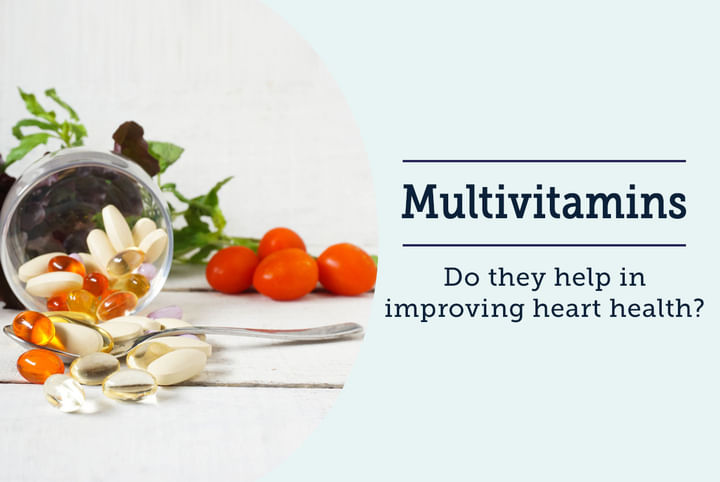Multivitamins - Do They Help In Improving Heart Health?
Vitamins and minerals can help you to lower your chances of developing heart diseases. But you may fall short of the appropriate quantity of these ingredients. Hence, multivitamins are used to fill in these gaps in your diet.
Multivitamins are basically supplements that contain several vitamins and minerals along with other components. They are available in different forms such as pills, tablets, powder and capsules.
In order to include them properly in your diet, you need to know their details.
Here are some supplements that will keep your heart healthy –
- Omega 3 fatty acids
These polyunsaturated fatty acids are found in walnuts, flaxseeds, and certain fishes like sardines, salmon and tuna. As the body does not produce them naturally, you need to consume them separately. These are great for the proper functioning of your heart. This is because the Omega-3 fatty acids help in lowering triglycerides production. High levels of this substance can lead to diseases such as coronary heart disease, heart attack and stroke.
- L-Carnitine
L-Carnitine is an amino acid that helps in converting the fats you consume into energy. It helps in maintaining the blood glucose levels in your body. Furthermore, it is beneficial for patients suffering from congestive heart failure and insufficient oxygenation in their heart. L-Carnitine helps in reducing the damage caused due to these conditions. The acid also helps in reducing the symptoms of angina and complications caused due to a heart attack.
You can get it from foods supplements or foods such as cheese, meat, milk and beef.
- Coenzyme Q10
This substance is found in the cells of your body. The cells use this to produce the energy required for cell growth. It also acts as an antioxidant that is found in foods such as soybean, peanuts, beef and sardines. It protects the skeletal muscles. The substance is said to be beneficial for patients who have suffered from a heart failure, it helps by boosting energy and speeding up their recovery.
- Magnesium
It is a mineral found in green vegetables, and fruits like avocado and banana, legumes, nuts and spinach. They also come as supplements in the form of magnesium citrate and magnesium gluconate.
Maintaining the sufficient levels of magnesium helps to maintain the blood pressure, cholesterol, and prevents the building of plaque in the arteries. Furthermore, it helps to prevent hardening of the arteries and calcification of the soft tissues.
- Folic acid
This is also called Vitamin B9 and is found in broccoli, asparagus and Brussels sprouts. This regulates the amount of homocysteine in the blood. This is beneficial for reducing the risks of blood clots that may be caused due to homocysteine.
It is best to consult a doctor before including a multivitamin or supplement in your diet as they may have side effects.


+1.svg)
